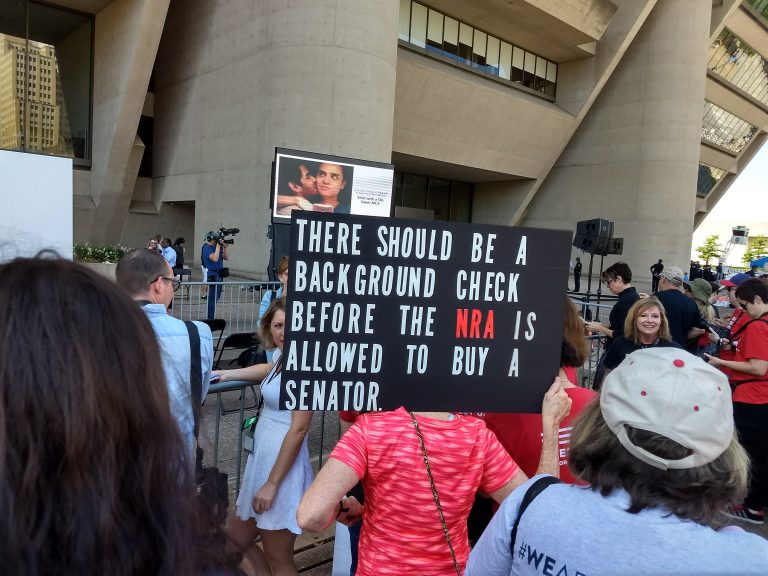Support for stricter gun control has waxed and waned periodically over the years, but some individual proposals poll consistently well. Why then do these proposals routinely fail to make it into law outside of the most left-leaning states?
That’s because individual issue polling often belies true political support for many common gun-control proposals. It’s a phenomenon that has come to characterize gun politics over the last decade or so, but one that supporters of gun control have largely failed to reconcile.
The inability to pass measures like universal background checks, assault weapons bans, or magazine capacity restrictions is often rationalized away as the work of a recalcitrant and all-powerful NRA. Clearly, that must be the case when proposals like universal background checks routinely see 80-90 percent support in polling data, right?
The truth is more complicated. When it comes to gauging policy support, as with most things, the devil is in the details.
Voters may express general support for a policy, but that doesn’t always mean they’re aware of all that it entails.
Asking if a person supports “universal background checks” may garner one response. Asking if they support having to drive to an FFL, pay a transfer fee, and conduct a background check before they give a firearm to a close friend is liable to produce a very different response politically—even if that’s functionally asking the same question.
There have been multiple case studies revealing the disconnect between polling support and political will on this very question in recent years.
In 2016, voters in Nevada got a chance to vote on a ballot referendum on the question of universal background checks. While the measure was ultimately approved by voters, it only barely survived, calling into question its reputation as a supermajority supported issue.
Meddling by the gun lobby couldn’t be blamed for the narrowness of its victory. Supporters of the measure, spearheaded by Michael Bloomberg and the group Everytown for Gun Safety, outspent the NRA and other opponents three-to-one. The question was also out of the hands of politicians vulnerable to lobbying influence and instead put directly to voters, who approved it by less than half a percent of the state electorate.
An even more revealing case came that same year, on the same issue, in Maine. Mainers were asked to vote on a measure to expand background checks to all unlicensed gun sales. The lead up to the vote saw a similar dynamic as in Nevada, with supporters of the expanded gun control outspending opponents a staggering seven-to-one. Yet, voters in Maine ultimately rejected the measure by a four percent margin. And that was in the same election where voters broke for Hillary Clinton (D.) over Donald Trump (R.) in the Presidential race.
One potential explanation is a difference in voter intensity. Poll respondents may routinely express support for a policy proposal, but that tells us little about where that particular policy ranks on their hierarchy of priorities as a voter.
This seems to be the case when considering gun control proposals with high polling support among Republicans. A large majority of Republican voters may say they support universal background checks to a pollster, but their support for that issue doesn’t mean they’re willing to eschew concerns over economics, crime, or immigration and vote for Democrats in order to get it passed.
But the intensity angle applies to Democrats too. Support for an “assault weapons” ban receives upwards of 83 percent support among Democratic voters in issue polling. Yet the policy hasn’t even been put to a floor vote in the House of Representatives since Democrats took the majority in 2018.
Politico initially reported an assault weapons ban would also not be part of the House Democrats’ response to the Uvalde shooting.
House Speaker Pelosi (D.) has suggested that might change in the near future, but that’s still no guarantee of serious action, let alone passable legislation. When the Senate last voted on an assault weapons ban following the massacre at Sandy Hook it only received 40 votes. That’s despite the fact that Democrats enjoyed a 53-47 majority at the time.
It seems Democrats understand, at least on some level, that a not-insignificant portion of voters doesn’t support such a ban.
So, whether one decides to chalk it up to the NRA, status quo bias, or some other electoral distortion, support for common gun-control proposals is often far more fickle than polling indicates, much to the chagrin of gun control supporters. Keep that in mind as Congress prepares to make its biggest gun-control push in years over the coming weeks.






